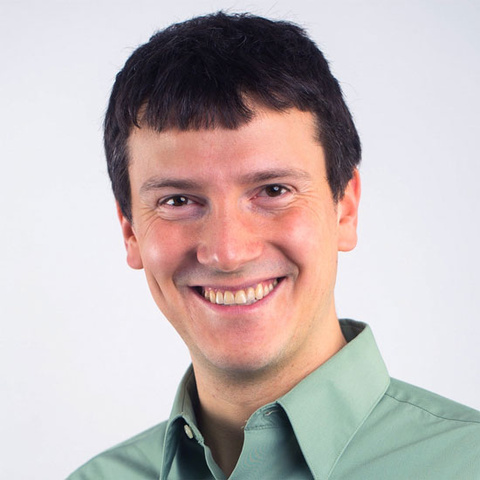Brun Receives IEEE 2021 TCSE Distinguished New Directions Award

UMass Amherst College of Information and Computer Sciences (CICS) Associate Professor Yuriy Brun has been selected by the IEEE Computer Society Technical Council on Software Engineering (TSCE) to receive the 2021 Distinguished New Directions Award.
The award is given annually by the TSCE to recognize individuals who have made substantial contributions to software engineering research or practice that have moved the field in a new direction. This year, Brun is being recognized for the establishment of a new research direction in the area of software fairness testing.
“The path-breaking technique for automated fairness test generation has been enthusiastically taken up by the software engineering research community,” commented Nelly Bencomo and Tim Menzies, co-chairs of the 2021 TCSE Awards. “This new approach to fairness expands beyond traditional machine learning into requirements elicitation, system design, and tools development, testing, and verification.”
This award recognizes work done by Brun and fellow CICS researcher, Associate Professor Alexandra Meliou, who, Brun says, “came up with the original idea to measure bias in software.”
In their seminal 2017 paper, “Fairness Testing: Testing Software for Discrimination,” which won an ACM SIGSOFT Distinguished Paper Award, they combined theory, machine learning, and system building to identify the problem of bias in software and present the first concrete technique for automated fairness test generation. “Meliou’s insights as an expert in data management inspired formalizations of software fairness, and our subsequent formulation of the challenges of the field,” says Brun. “She was an integral part of establishing this new research direction.”
“I first discovered the need to measure bias in software while investigating systematic problems in data quality,” says Meliou, an expert in usability and bias in data management and co-director of the CICS DREAM (Data systems Research for Exploration, Analytics, and Modeling) Lab. “It turns out it’s not just a question of bad data, it’s a question of whether our algorithms are capable of providing equal and fair service regardless of underlying data quality. Underrepresented people, especially, are at risk of harm from software bias in domains that range from hotel bookings to policing to employment-related web searches.”
As part of their 2017 paper, they introduced Themis, an automated software fairness tester. “Because software engineers use the testing process to evalaute software quality, we wanted to provide a way to automatically generate test suites that measure discrimination,” Brun explains. “Since fairness is a crucial aspect of software quality, we need to build tools and processes for ensuring fairness that fit into existing modes of software development.” Today, these goals are a major part of the mission of LASER (Laboratory for Advanced Software Engineering Research) at CICS, which Brun directs.
Building on the success of Themis, Brun and Meliou laid out the roadmap for future research efforts in a 2018 paper, "Software Fairness," a call to action to make fairness integral to the software engineering process, and to build the tools needed to support fairness in requirements, design, implementation, testing, and verification.
As part of this effort, Brun published research in Science in 2019, led by Assistant Professor Philip Thomas, with Professor Emeritus Andy Barto, Assistant Professor Bruno Castro da Silva, and others, that created a new framework for designing machine learning algorithms to make it easier for software developers to specify safety and fairness constraints. Brun and Meliou’s research has been supported by the National Science Foundation, Google, and Oracle Labs.
The award will be presented at the 43rd International Conference on Software Engineering, to be held May 25–28, 2021.